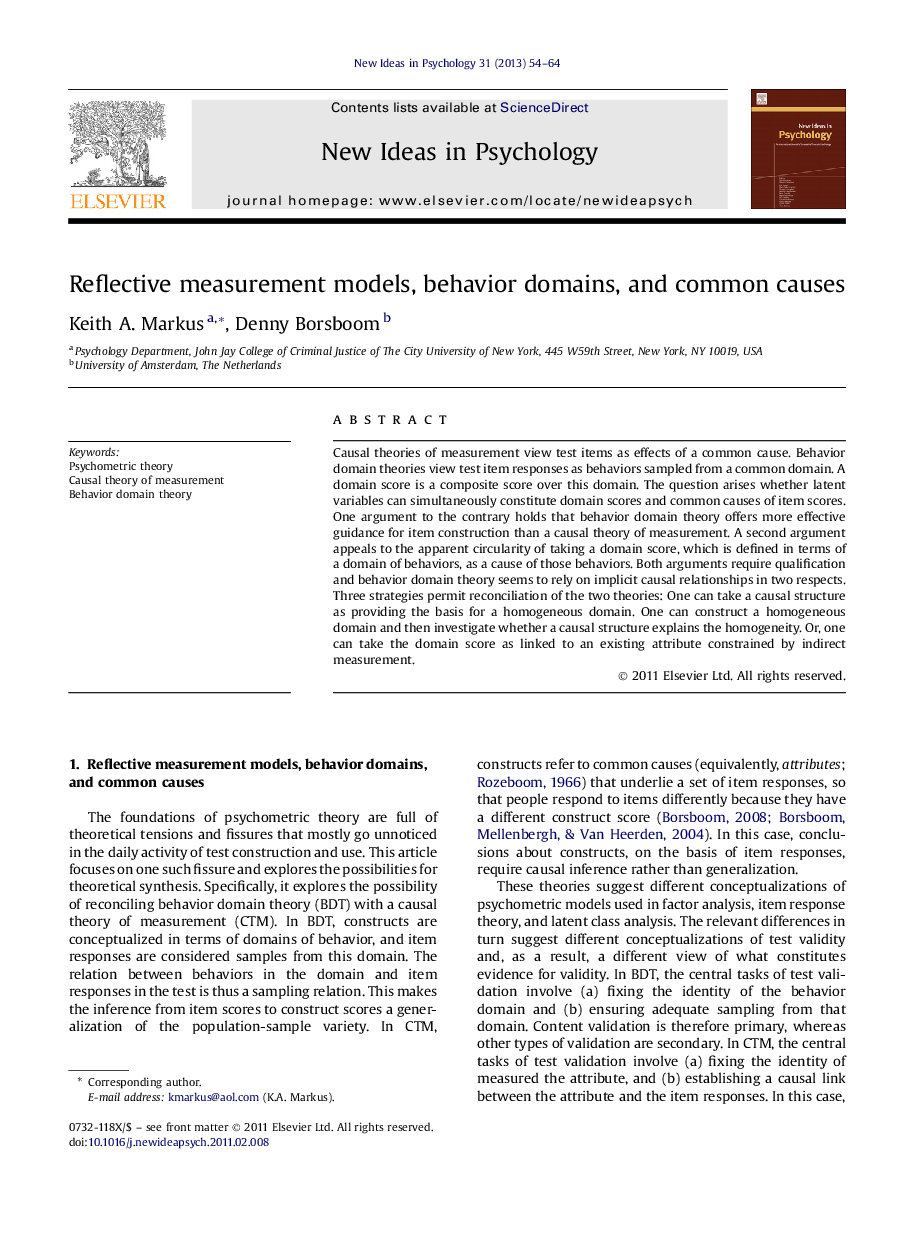| کد مقاله | کد نشریه | سال انتشار | مقاله انگلیسی | نسخه تمام متن |
|---|---|---|---|---|
| 331414 | 544236 | 2013 | 11 صفحه PDF | دانلود رایگان |

Causal theories of measurement view test items as effects of a common cause. Behavior domain theories view test item responses as behaviors sampled from a common domain. A domain score is a composite score over this domain. The question arises whether latent variables can simultaneously constitute domain scores and common causes of item scores. One argument to the contrary holds that behavior domain theory offers more effective guidance for item construction than a causal theory of measurement. A second argument appeals to the apparent circularity of taking a domain score, which is defined in terms of a domain of behaviors, as a cause of those behaviors. Both arguments require qualification and behavior domain theory seems to rely on implicit causal relationships in two respects. Three strategies permit reconciliation of the two theories: One can take a causal structure as providing the basis for a homogeneous domain. One can construct a homogeneous domain and then investigate whether a causal structure explains the homogeneity. Or, one can take the domain score as linked to an existing attribute constrained by indirect measurement.
Journal: New Ideas in Psychology - Volume 31, Issue 1, April 2013, Pages 54–64